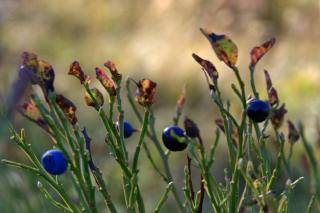

Bilberry is an amazing small fruit tree which you’ll enjoy caring for.
Basic Bilberry facts
Name – Vaccinium
Family – Ericaceae
Type – fruit shrub
Height – 30 to 60 inches (80 to 150 cm)
Exposure – full sun, part sun
Soil – acid, heath soil
Foliage – Deciduous – Flowering – Spring – Harvest – Summer
Planting, watering, pruning and care will amplify the harvest.
It is a good idea to plant bilberry in fall, between October and November, to favor root development and thus settling in.
You may also plant in spring taking great care to water more abundantly the first year.
Bilberry is planted like a heath plant and hence requires acidic soil. Consequently, heath soil is the best choice for planting.
As regards the propagating of bilberry bush, layering is the simplest and fasted method to get new plants.
You can also prepare cuttings from your bilberry bush from herbaceous stems at the beginning of summer or from woody stemps in fall and winter.
What you have here is a small fruit shrub that is easy to care for.
The right time for the pruning of bilberry bushes is at the end of winter, the beginning of spring. The months of February-March are usually the most auspicious months for pruning.
Important: A branch can only produce at most 3 or 4 years in a row, and each branch only produces on wood that is 2 years old, or from the preceding year.
Also note that the most vigorous stems generally grow straight from the base, these are the ones producing the most beautiful bilberries.
 So branches that aren’t productive anymore should be cut off.
So branches that aren’t productive anymore should be cut off.Amending the soil with fertilizer in spring will greatly build up the harvest de bilberries.
Bilberry bush delights in cool soil and thus must be watered on a regular basis in case of dry spell or strong heat.
Mulch helps retain moisture in the soil for longer.
These are delicious fruits to bake in gravy with game, in pies or jam, and overall bilberry is a fruit that is quite easy to produce.
Care is moderate, watering is minimal in summer, and pruning only takes place every 3 to 4 years.
You’ll quickly have the satisfaction of going to harvest your bilberries during summer in your garden.
Note that to ensure a good bilberry harvest, it is best to protect your shrubs because slugs and birds are ecstatic when they find these berries.
Mulch at the foot of of this plant over winter will protect it advantageously when winters are cold.